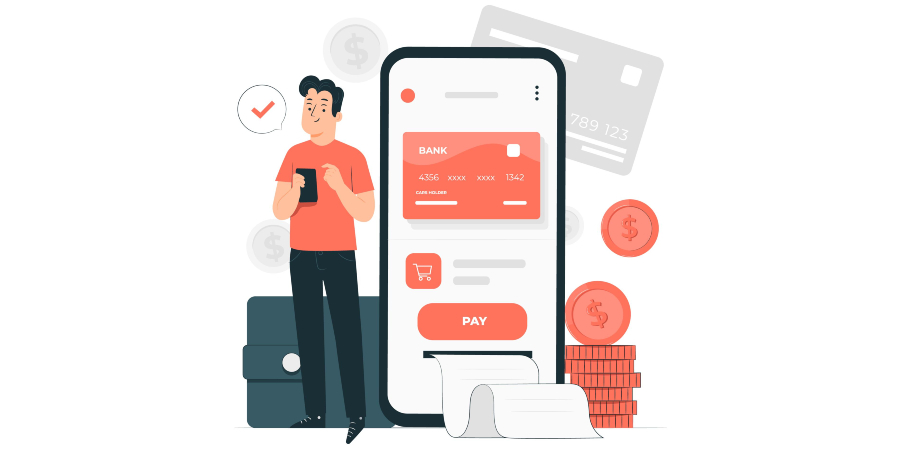Digital Payments Security – Protect Your Money & Reputation

E-commerce is a smooth process, especially needing consistent performance, which consists of many aspects. Today we will pay attention to only one of them, the most essential – payments security.
Perhaps you already know about some popular methods or have heard somewhere but have not thought about their importance in ensuring the reliability of cybersecurity payments. But this is vital because your business's success and reputation depend on their implementation's correctness and quality.
What is Payments Security?
Payments security is a complex set of measures that ensures not only the safety of transactions but also the protection of personal data and the prevention of leaks and malicious activity. All this is regulated by generally accepted international standards like PCI DSS. Compliance with strict requirements is a decisive factor determining the development and implementation of security payment systems.
PCI DSS Compliance for Security Payment Systems
If your business involves processing, transferring, or storing personal & payment information, you must obtain proof of PCI DSS compliance. Its requirements and examination type depend on the number of transactions that pass through your organization each year. There are four levels of compliance in total, and the first one has the most requirements.
Self-assessment is sufficient to meet Level 4 requirements, while Level 1 representatives are subject to an external audit by certified cybersecurity payments professionals. Many factors affect the score, including integrations with third-party payment systems. It doesn't sound straightforward, but all the care about proper payments security fully pays off the investment because your relationships with customers and the reputation of your business are at stake!
Some Popular Ways to Ensure Payments Security
Here we will look at the most prevalent cybersecurity payment protection methods to help you understand them better. Some are mandatory for all providers of online transactions; others more advanced – only for payment platforms.
Transaction Tokenization
Tokenization is a type of encryption required to protect payment data. It is done by replacing personal information with a set of random characters that can only be decrypted using public and private keys belonging to the seller. Thus, this payments security technology minimizes the risks of data interception and disclosure. It works for both protecting one-time transactions, as well as permanent accounts, and recurring and scheduled online payments.
SSL Compliance
Secure Sockets Layer or SSL is a cryptographic cybersecurity protocol created by Netscape Communications that is required for the secure transmission of information via the Internet. It is especially true for web resources and pages that process personal data and payment information.
The ease of obtaining and affordable cost of SSL is a significant advantage for business website owners. However, cyber scammers can also use this to certify phishing resources. That is why SSL should be one of the payments security methods you use, not the only one.
3-D Secure Protocol
It is another way to authorize cybersecurity payment to minimize risks when conducting CNP operations. When entering data about an online purchase, contextual information about the client is collected – IP addresses, payment amount and history of initial transactions, etc. This data is necessary to process the request at the initial stage and assess the legitimacy of the user's intention before making the purchase. If the collected info is in doubt, the buyer receives a request for additional identification – an SMS or a call from the bank, entering a unique code or other confirmation.
The information transmitted from the client only enters the security payment systems of the issuing bank. Third-party resources like an online store do not have access to this, which helps protect data from theft.
Address Verification Service
Popular credit card suppliers provide AVS to verify card ownership by the buyer. During the processing of the transaction, the address verification service checks the data indicated in the issuing bank's records and the actual data and uses this for payment approval.
The effectiveness of AVS is currently a prevalent cause of controversy among international payments security professionals. Some consider this to be an excellent auxiliary way to minimize the risks of fraud. Other experts lament the vulnerability to irrelevant input and increased access to personal data.
In Conclusion – Delegate Complex Tasks to Experienced Experts
The most reliable way to secure online payments is to provide comprehensive and multi-level payments security hidden from users. It means that transactions will be as smooth and seamless as possible for the client but also inaccessible to potential threats. It will be easy to do this with the help of the best specialists from MBS Tech Services! With vast experience in the cyber security industry, we continue to be at the forefront of your data protection. We will happily adapt the advantages of advanced security payment systems to your business.

Categories
For your convenience, we’ve divided our blog on cyber security into several categories so that you can find necessary articles fast and effortlessly. Just choose the category that evokes your interest and enjoy reading.